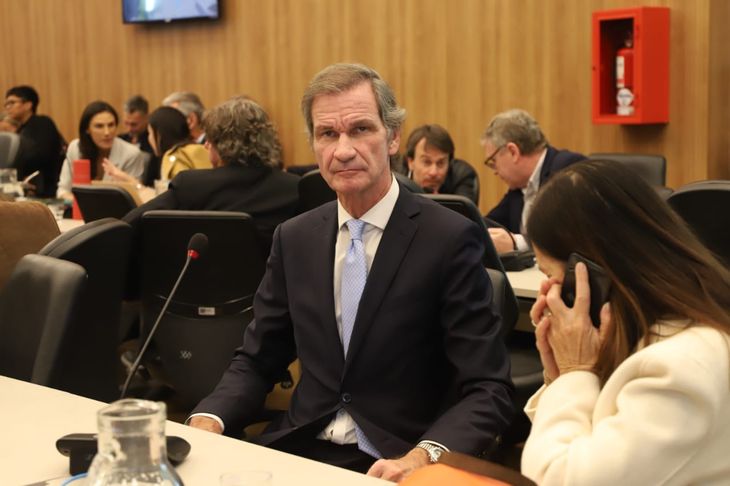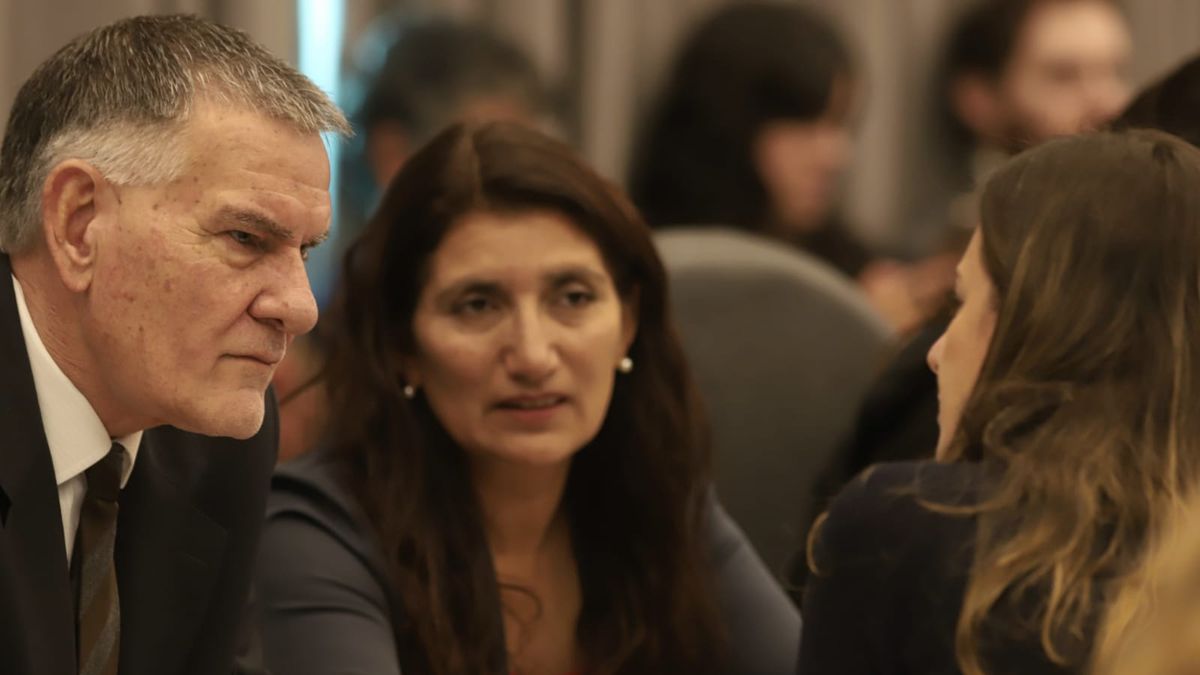In order to obtain an opinion, commissions of the Chamber of Deputies met on Tuesday to discuss one of the most ambitious initiatives of the ruling party in matters of security and criminal legislation: sanction a reform of the reduction of accountability. Specialists in neuroscience and penal systems gave lectures. The debate will continue next week.
This is about the Fifth plenary session in the Chamber of Deputies, where specialists and the authors of the various bills that seek to modify the current one spoke Juvenile Criminal Regimeestablished by decree in 1980. The main difference between all the blocks, which agree on explicitly guaranteeing living conditions in closed centers for adolescents in a criminal situation, has to do with the lowering of the age of criminal responsibility: the libertarian proposal proposes 13 years, different initiatives (PRO, UCR and even UP) agree to set it at 14 and a majority sector of Union for the Homeland will try to maintain it at 16 years old.
The parliamentary strategy of the ruling party – together with allied spaces – foresees the convening of successive specialists from different blocks, so that the debate gives legitimacy to a ruling that they take for granted. From Peronism they point to the economic unfeasibility of reducing punishability and they seek to distort these consensuses through the approval of a crime prevention program that provides technical support to adolescent offenders in order to prevent recidivism.
Soria Rodriguez Machado Expert
Soria, Rodríguez Machado and Espert, authorities in the plenary session of commissions.
After the expansion of the National Registry of Genetic Data and the reform of the Firearms Lawobtain half sanction in the Lower House, the Government advances gradually with the addition of consensus for a series of Security and Justice reforms that they promote. Among these projects, there are Comprehensive Approach Project against Crimen Organized (obtained opinion), the Law of the Restored Property Law and the Jury Trial Regime.
Lowering of imputability: intervention of specialists in the Chamber of Deputies
The neurologist Conrado Estol “an early adolescent cannot think at five years old, which is a third of his life and it can be half of their life; it is always short term.” In this context, he stated that “there is a great opportunity to change the behavior of these children,” pointing out that “with childhood, adolescence and youth plans; through cognitive-behavioral therapy, behavior can be changed.”
The sociologist Silvia Stulchik He recalled that “in recent years, the reforms of the regimes that maintained the age at 16 years were not promoted, so the due processes were not guaranteed. The provinces where Young people under 16 years of age are deprived of their liberty“. He then cited figures from the 2023 UNICEF census, which recorded that 4,153 adolescents were detained under different regimes; of these, 60% are under 17 years of age and of this subgroup only 1.7% are under 16 years of age, which is why he argued that the drop in imputability is not justified by statistics.
Conrad Stol

Conrado Estol, neuroscientist.
Ignacio Petunchi
Later, the psychiatrist Andy Blake considered that “I don’t think the answer is age, but rather to propose a special regime for this special population that has a great capacity for learning.”However, he considered “punishment necessary, because it helps them organize themselves”: “the problem of the adolescent is the recognition of limits.”
The last specialist was the lawyer Marcela Angulowho pointed out that the projects to reduce imputability violate the principle of non-regression. Furthermore, considering that the maximum sentences stipulated are 20 years, he stated that “exceeding the life expectancy of the accused is arbitrary and disproportionate” and criticized “the provision of a security perspective with no time limit.”
Internal Security Act: reform to modify the role of the Armed Forces
In the National Defense Commission, the former Minister of Defense, Horacio Jaunarena (three administrations under the presidencies of Alfonsín, De la Rúa and Duhalde), appeared on Tuesday, where he explained his position on Amendment to Law 24.059 on Internal Securitywhich enables intervention of the Armed forces in civil society “in the case of terrorist actions aimed at terrorizing the population, without having to resort to an extreme remedy, such as declaring a state of siege.“.
The project establishes that –“for the sole purpose of protecting life and liberty”– the functions of the Armed Forces will achieve “population control, installation and operation of fixed and mobile checkpoints for vehicles and people”; securing and cordoning off an area; crowd control; use of riot control equipment; procedures for cooperating with local police and/or international police,” among other functions for which the agents will be specially trained and prepared.
“This project is a novelty,” said Jaunarena.who explained that “the current law prohibits the training of men of the Armed Forces for internal security issues, however the project maintains that this training will be when they are part of a peace force.” Finally, he established his position in favor: “Beyond the differences The sense of cooperation should prevail to improve our security and our defense.. Our democracy must provide security to the entire nation.”
Source: Ambito




